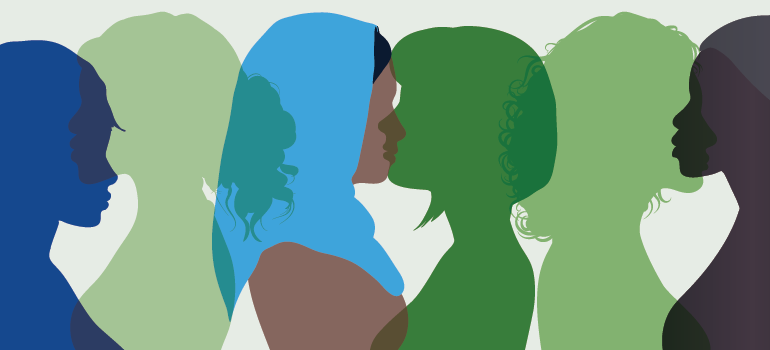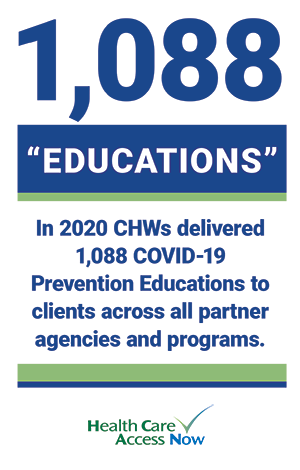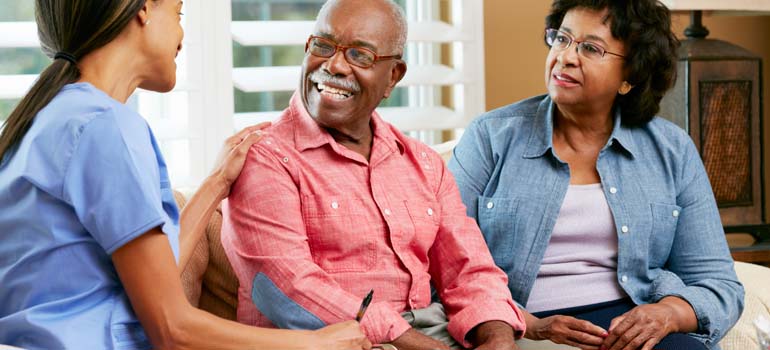COVID “Educations” support, don’t judge

Health Care Access Now (HCAN) and its Community Health Workers (CHWs) have been on the front lines of the COVID-19 pandemic. “It’s affecting all of us at the same time,” says Bettie Johnson, HUB Operations Coordinator for HCAN. As a result, they are careful to use a sensitive and non-judgmental approach to the COVID-19 Educations CHWs impart to clients.
CHWs use the Pathways Community HUB model to identify and eliminate barriers to clients’ good health outcomes. Once an obstacle has been determined, CHWs provide Educations on that subject, which allow the clients to better advocate for themselves and make decisions that support their well-being. In all program categories, COVID-19 Educations were one of the top three Education topics in 2020 for HCAN. These Educations were specially created by CHWs and HCAN’s data personnel.
Frequently asked questions
There is a lot of misinformation floating around about the COVID-19 virus as well as the vaccine. For example, “Some think the vaccine will change your DNA or affect your reproductive health, but there is nothing to support that,” Johnson says.
CHWs begin by surveying clients about their knowledge in order to determine what factual information to provide. “They talk about the myths and facts, how to get registered for vaccines, how to arrange transportation to get their shots, and the benefits available from providers and in the community.”
Johnson says, “We arm them with information. Our goal isn’t to persuade or dissuade, but to give nonbiased, nonjudgmental, nonclinical support so they can freely make their own decisions.”
They also offer information about the differences between vaccine brands. For example, some clients are concerned that the shots are made of the virus itself. While that is somewhat true of the Johnson & Johnson vaccine (it contains inactivated (not live) virus that cannot produce an active infection), the Moderna and Pfizer vaccines do not use components of the virus at all.
Staying protected
Beyond countering misinformation, CHWs talk to clients about how they can keep themselves safe if they choose not to be vaccinated. The ultimate goal, Johnson says, is to get clients to have a conversation with their primary health care provider about the vaccine. “We help them understand questions to ask, and how important it is to be open and honest about health concerns and issues” with their doctors.







